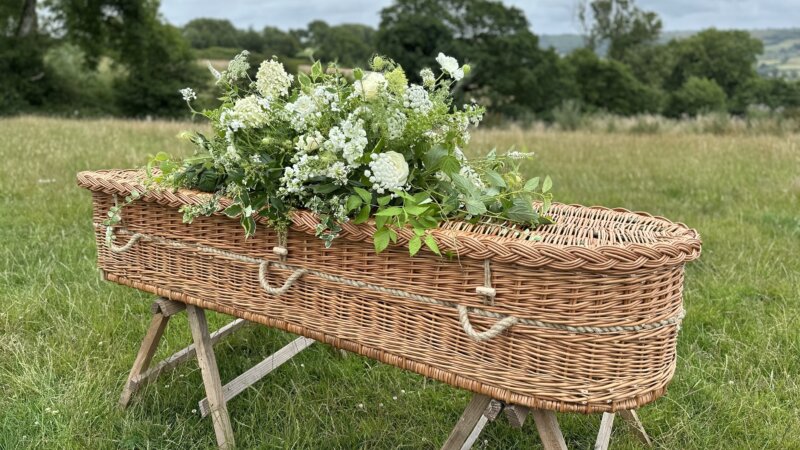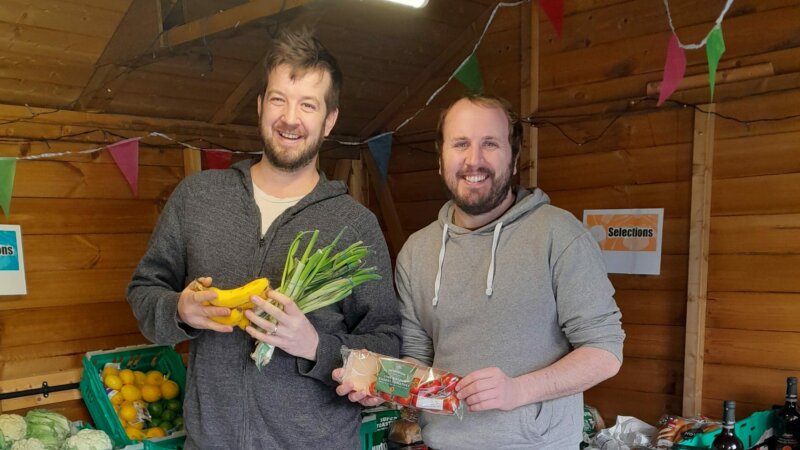Warp Films: Celebrating Ten Years
Warp Records needs no introduction. Nearly all those reading this magazine will be aware of this city's postindustrial musical identity, which the label managed to meld into a dizzying succession of analogue bleeps, kicks and crashes that forged a sound that is wholly synonymous with Sheffield's metallic industrial past. Despite having now moved to London, the sound of synthesisers pushed to their limits still reverberates around the seven hills. But the company, whilst best known for their musical output, has also graced the presence of another medium, that of film, and this year sees the tenth birthday of its sister company, Warp Films.
The label had already established a significant visual style, thanks to director Chris Cunningham, a surreal talent whose deranged and visionary videos perfectly translated the musical essence of key Warp figures like Aphex Twin and Squarepusher, whilst also maintaining a persona that was as mysterious and hermetic as the artists he was working with. However, it was through a collaboration with demigod satirist Chris Morris and producer Mark Herbert in 2002 that the company made its first substantial statement in the film world - My Wrongs #8245-8249 & 117, a 12-minute black comedy starring Paddy Considine as a fumbling man manipulated by a talking dog who claims to be his lawyer, due to defend him in court for his life's wrongdoings. The project won a BAFTA and the Warp Films legacy had begun, just as the record label had done 13 years earlier.
'Having something that was as recognisable as the record label and as cool as the record label helped', Barry Ryan, Herbert's working partner and Head of Production at Warp Films, tells me on a Wednesday morning in their Sheffield office. 'There's a shorthand there. For people who understand and are aware of the label, there's an association with Warp within the industry, culturally and among journalists. It was quite a significant thing. There was an expectation about what kind of films we'd make. We'd have strange conversations at first when we were looking at going into TV, with people saying 'Oh you're Warp, can you just do cool stuff for us?' and we thought - the minute we set out trying to do something that's cool, we'd be shooting ourselves in the foot as we don't even have the right haircuts. It's the wrong way to go about creating something. But the idea is that you work with artists, you work with people you believe in and that you support them in what they do.'
This mindset, practised throughout the music label's career, has clearly been upheld by the production company, who exhibit a handful of strong and fruitful professional relationships, and the longevity of these has meant that artists' voices are given time to develop and strengthen, all whilst the scale and quality of the company as a business grows. Such an organic and reciprocal nurturing process has helped the company's output become renowned not only for its quality, but also as representing a hearty endorsement by its producers concerning the artists involved.
The most renowned of these collaborations is with Midlands writer-director Shane Meadows. Mark tells me about how this came about: 'Thanks to Paddy saying we should meet Shane as he thought we'd get on. He was saying to Shane, in reference to me: 'Here's somebody our age who's not posh with a double-barrelled surname from London'. Invariably lots of producers came from that background and Shane and Paddy found it hard to communicate with them. Shane had a very singular vision and lot of producers were trying to tailor that into the norm of filmmaking. So we said what if we made a film with you, take your favoured filmmaking process and allowed you to do that? And he was like: 'Fuck it, let's do it'.
The resultant film was Dead Man's Shoes, a low-budget revenge drama set in the Derbyshire countryside, following a soldier returning from combat, seeking to hunt down and punish the gang who bullied his disabled brother.
Numerous innovative approaches, altered in the face of a director's needs, allowed Warp Films to work in a way that was unique and could produce a film that reflected that freshness. Such techniques included 'shooting chronologically, because [Shane] often changed the script because sometimes a character would come in and be brilliant but in the script not be used in more than four scenes; using practicals (i.e. lights found on set), as if you've got a good director of photography then you don't need loads of lights'; and not shooting a scene because it benefited practicality rather than story. As a result, the actors' organic performances, along with the spontaneity of the filmmaking techniques, helped Warp's films stand out from lots of the British fodder, which either tried to poorly replicate Hollywood or became obsessed with its own caricature. 'What we offered was a different way to look at stories. For Shane the attraction was that we could meet half way in Chesterfield.' These approaches, along with the geographical distance between Warp and their counterparts, created a sense of mystery that left the London-centric industry waiting for their next big project.
After Dead Man Shoe's, Shane realised - 'Warp is my home now, as they appreciate the way I work', and with the tremendous critical reception to the film, the company had the confidence and financial freedom to let Meadows run freer and with more artistic gusto. The result was This is England, which drew upon the director's childhood experiences of developing within a skinhead community whose identity embracing Afro-Caribbean immigrant culture is forgotten with the rise of English nationalism. The film did unpredictably well domestically and internationally, and helped establish Meadows as the accessible auteur that his previous works had suggested he was. However, what this film represented wasn't simply a director realising his true vision. It also acted as a reminder that its realisation wouldn't have been possible without the creative refinement and professional freedom that Warp Films brought to the director, and therefore showed what a collaboratively fruitful process working with this production company in particular was. It was at this point that it seemed clear that Herbert, Ryan and co had established a unit that promised longevity whilst embodying the right kind of values, which paid tribute to and fitted comfortably alongside its older musical sibling.
The next few years saw Warp finding their feet again in the wake of such unpredictable success. They established Warp X in 2005, a strand specialising in producing digital features, releasing a handful of low-key features, from tragicomedy documentaries (A Complete History of My Sexual Failures) to morally questionable provocations (Donkey Punch). For most outsiders this was seen as a quiet lull in the Warp journey, but one only need cast a retrospective eye over the consequent years to deduce that this must have in fact been a period of productive dormancy.
2009 saw a host of successes such as Bunny and the Bull, All Tomorrow's Parties, and Le Donk and Scor-zay-zee. Such variety helped remind people that Warp Films was more than just 'Shane Meadows Productions' (despite him directing the latter). These once again fleshed out the philosophy with which the company had approached their earlier films, offering a unique opportunity for artists to work creatively with a budget which they otherwise wouldn't have had access to or would have been more strictly controlled over. What became clear is that even when some films weren't as successful, such as that year's Hush, they were still trying to identify with the Warp brand and therefore a viewing of them could help viewers try to grapple with where the company was heading - an exciting prospect with such a diverse range of works being released.
The next year saw another step up in output as they consecutively released Four Lions, Submarine, and This is England '86, all to massive critical and box office acclaim. The former was a reuniting with their first project's director Chris Morris, the latter was another Meadows project, this time a TV-sequel to his 2005 magnum opus. Submarine was a more unpredictable affair, as it saw IT Crowd comedy star Richard Ayoade take the directing reins to produce a bold coming-of-age comedy which heartily expressed itself as an ode to the spontaneity of the French New Wave filmmakers of the early 60s. Once again, a relatively new filmmaker had been taken by Warp, nurtured and given the freedom to express themselves in a way which was exciting and cinematically confident.
This chain of successes led to last year's films: the traumatising yetfabulously well judged Kill List, the heart-breaking Tyrannosaur, and Snowtown, a serial killer flick which saw the establishment of a Warp strand in Australia of all places. Given the Northern locality of Warp and the successes it had garnered as a result, this seemed a surprise move. The truth in its decision is far more haphazard, given Herbert only originally went to Australia as an excuse to see his expatriate brother. 'For some reason the timing was so spot on, Australia was reinventing the way it made films - much more international appeal even for low budget. So we just came up with this idea of having a strong brand like Warp run by someone we trusted over there. A lot of our work has been seeing an opportunity and seizing it by the balls. That's the truth of it. Like, 'Shit there's loads of money in Australia and my brother lives there, let's do something over there!' Snowtown was a success thanks to the confidence and experience Warp brought to the table and the trajectory of the company's antipode relative promises to be as unpredictable as the Warp journey so far.
So what does the future hold? The company has a distinguished international market lapping up most material they put out thanks to their daring and often extreme filmmaking decisions. Their latest, Berbarian Sound Studio, has still left a maniacal image on my retinas which I've yet to decipher.
Mark says: 'Well, I've got three kids, and 'daddy's got a new film!' 'Snowtown? No, you're not going to watch that.' 'What's Donkey Punch about, daddy?' are conversations I often find myself in, so we are planning to do a family film, but with a Warp twist. And it's not because it will make us loads of money, but because we all want to do one. We're all at that age where we've got young kids, and I feel like I know what works and what doesn't. We're living with the audience'.
Warp Films will celebrate its tenth anniversary at the Magna Centre on Saturday 17th November, with a live re-score of Dead Man's Shoes by a collaboration of musicians including members of Clayhill and UNKLE, followed by DJ sets from Andrew Weatherall, Tom Ravenscroft, Pablo Clements and Shane Meadows. More info here.
Stay tuned to the Now Then Facebook page for the chance to win tickets to the event, as well as a number of other Warp Films related goodies.
warp.net/films
warpfilms10.com )





